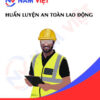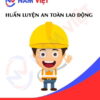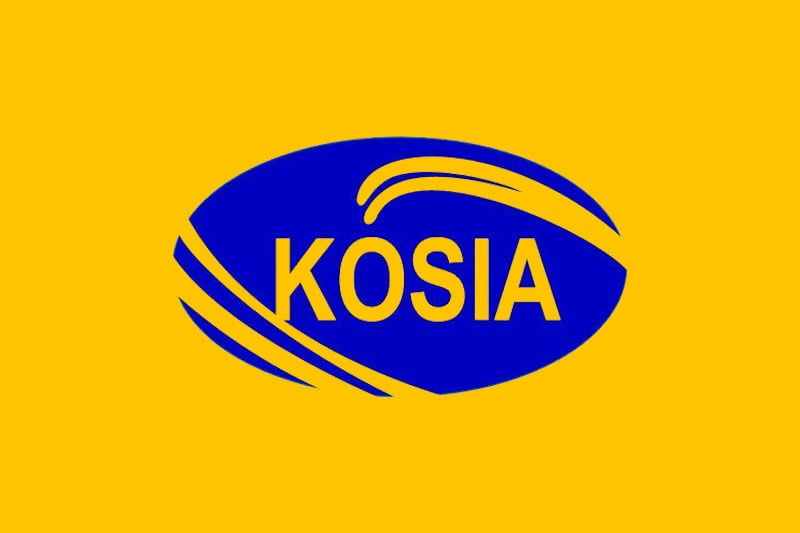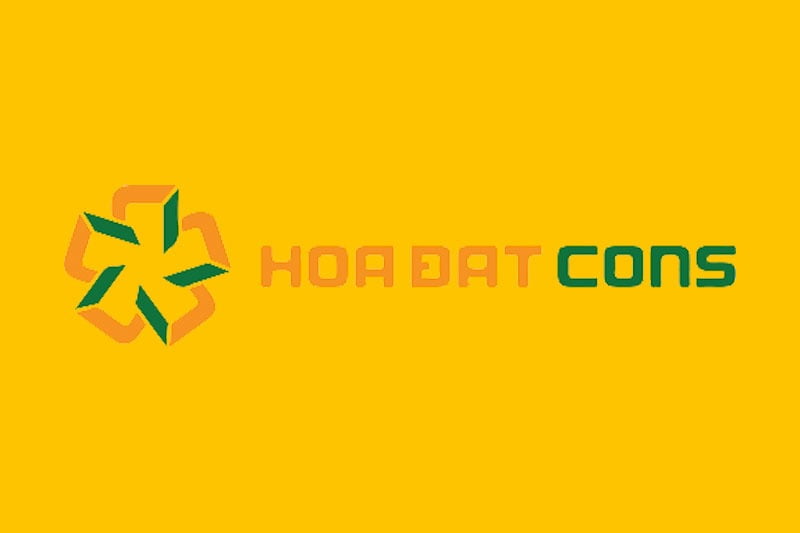Occupational Safety Training for Accountants
99,000 ₫
Note: The above price is calculated for one person, and the price may fluctuate depending on the number of learners participating in the course and market movements. For more accurate pricing support, please refer to the price list or contact our consulting staff directly.
The Safety Training Course for Accountants is a course that equips knowledge of group 3 occupational safety. The course will enhance learners’ awareness of how to prevent workplace accidents during the manufacturing process. Accordingly, occupational safety training content is closely aligned with Article 18 Decree 44/2016/ND-CP.
Table of Contents
Toggle1. Overview of Accounting
a. The Important Role of Accounting
The role of accounting is very important in every organization, company, or non-profit organization. Below are some key roles of accounting:
- Financial tracking and recording: Accountants are responsible for collecting, recording, and tracking the financial information of an organization. They record economic transactions, including income, expenses, assets, and liabilities, to produce financial information such as financial statements, accounting books, and tax reports.
- Financial reporting: Accountants prepare financial reports, including profit and loss statements, cash flow statements, and reports on assets and liabilities. These reports provide important information to stakeholders such as owners, shareholders, investors, regulatory authorities, and banks.
- Financial resource management: Accountants help manage the financial resources of an organization. They monitor income, expenses, and cash flow to ensure the organization maintains financial balance and optimizes resource utilization.
- Ensuring legal compliance: Accountants are also responsible for ensuring that the organization’s financial activities comply with accounting laws and regulations. They monitor changes in accounting and tax laws to ensure compliance and avoid legal risks.
- Supporting strategic decision-making: Through financial data analysis, accountants provide crucial information for the organization’s strategic decisions. Financial reports and figures help determine financial performance, profitability, and financial trends.

b. Accounting in Various Industries
Accounting plays an important role in almost all industries. Below are some examples of the role of accounting in common sectors:
- Manufacturing: Accountants in manufacturing track and record production activities, storage, and transportation of goods, manage costs of raw materials, finished products, and labor. Accountants also help calculate production costs and assess the efficiency of production processes.
- Service Industry: In the service sector, accountants track and record transactions related to services provided, such as consulting firms, banks, hotels, and restaurants. Accountants provide information on revenue, costs, and profit from service activities, helping to manage resources effectively and evaluate business performance.
- Real Estate: In real estate, accountants track and manage financial information regarding buying, selling, leasing, and managing property assets. Accountants calculate asset value, construction costs, rental income, and investments in this sector.
- Commerce: Accountants in commerce track, record, and manage financial information about purchasing, selling, inventory, and accounts receivable. They also support profit calculation, price determination, performance evaluation, and risk management in commercial activities.
- Finance and Banking: In finance and banking, accountants play a crucial role in tracking and recording financial transactions, including credit transactions, securities transactions, risk management, and calculating profits from financial activities.

2. Overview of Safety Training Courses for Accountants
a. What is Occupational Safety Training for Accountants?
- Occupational safety training for accountants consists of sessions designed to raise awareness about preventing workplace accidents. Accordingly, accountants belong to group 4.
- The safety training course helps employees recognize and avoid hazards, reducing the risk of workplace accidents while performing their duties.
REGISTER FOR OCCUPATIONAL SAFETY TRAINING SERVICE
b. Training Duration
i. Initial Safety Training Duration for Group 4
- Total training time is at least 16 hours, including examination time.
- 8 hours of theory on basic occupational safety and hygiene knowledge
- 6 hours of practical training at the workplace
- 2 hours of theoretical final exam
The safety training center will divide the duration into multiple sessions depending on the scheduling for employees. Typically, there will be 4 sessions for group 4, with the course lasting 2 days, provided the company can arrange continuous learning time.
ii. Periodic Safety Training Duration for Group 4
- Before the occupational safety training certificate expires, employees who wish to renew must undergo periodic occupational safety training, with the periodic training duration being at least 50% of the initial training duration.
- This means the total duration of periodic training for group 4 is at least 8 hours, including examination time. After completing the periodic training and passing the exam, employees will have their group 4 safety training logbook renewed.
c. Course Content
| No. | TRAINING CONTENT | TRAINING DURATION (HOURS) | |||
| Total | Including | ||||
| Theory | Practice | Exam | |||
| I | Basic knowledge of occupational safety and hygiene | 8 | 8 | 0 | 0 |
| 1 | Basic knowledge about hazards and harmful factors in the workplace. | 4 | 4 | ||
| 2 | Methods to improve working conditions. | 1 | 1 | ||
| 3 | Safety culture in production and business. | 1 | 1 | ||
| 4 | Rights and responsibilities of employers and employees; safety and hygiene policies for employees; functions and duties of safety and hygiene staff. | 1 | 1 | ||
| 5 | Safety rules, signage, instructions, use of safety equipment and personal protective equipment; accident first-aid procedures, occupational disease prevention skills. | 1 | 1 | ||
| II | On-site practical training | 6 | 0 | 6 | 0 |
| 1 | Identify hazards, harmful factors, rules, signs, and instructions at the workplace. | 2 | 2 | ||
| 2 | Practice safe work procedures; incident handling related to assigned tasks; emergency evacuation procedures. | 2 | 2 | ||
| 3 | Practice basic first-aid methods. | 2 | 2 | ||
| III | Final exam on occupational safety training | 2 | 2 | 0 | 0 |
| Total | 16 | 10 | 6 | ||
See more training content of the 6 groups
d. Occupational Safety Training Certificate
- After completing the group 4 occupational safety training and passing the exam, employees will be issued a group 4 safety training logbook
- The logbook clearly shows information such as full name, year of birth, job, workplace, training duration, and results. It also includes the official seal and signature confirming the completion of the training course by the general director of Nam Viet Safety Training and Environmental Monitoring Company Limited.

3. Common Hazards for Accountants
In their work, accountants generally do not face hazards that significantly affect health. However, if working in poor conditions or performing tasks incorrectly, accountants may encounter health issues such as:
- Stress and work pressure: Accountants often work with detailed data and documents, ensuring accuracy and compliance with legal regulations. This can cause work-related stress and pressure.
- Long working hours: Accountants often work long hours, especially during year-end accounting or tax finalization periods. Extended working hours can lead to fatigue and health issues.
- Poor working environment: Accountants often work in office settings with computer screen glare and dry air. A poor working environment can cause health problems such as headaches, eye strain, and neck and shoulder pain.
- Lack of physical activity: Accountants often sit for long periods with minimal physical activity. This can result in health issues such as back, neck, and shoulder pain.
To minimize health hazards, accountants should ensure reasonable working hours, exercise regularly, and maintain a good working environment to reduce stress and improve health.

4. Safety Measures for Accountants
To ensure health safety in accounting work and minimize occupational hazards, here are some measures accountants can implement:
- Implement ergonomic measures: Ensure a comfortable and ergonomically designed work environment. Use appropriate chairs and desks to support proper sitting posture, adjust the height of computer screens and keyboards to avoid neck, shoulder, back, and eye strain.
- Perform stretching exercises and physical activity: Accountants should regularly perform stretching exercises to reduce tension and improve blood circulation. Additionally, exercising regularly helps maintain overall health and reduce stress.
- Reduce prolonged sitting: Accountants should try to minimize long periods of sitting by standing up and walking frequently, performing light exercises between tasks to keep the body active.
- Protect eyesight: Accountants should ensure that the workspace has good natural lighting and adjust artificial lighting to avoid glare. They should also perform eye relaxation exercises such as looking into the distance to reduce eye fatigue.
- Manage stress: Accountants should find stress management techniques such as yoga, meditation, or relaxation methods to reduce tension and improve concentration at work.
- Take rest and vacations: Ensure sufficient time for rest and travel to recover health and relieve accumulated stress from work.
- Maintain work-life balance: Accountants should create a balance between work and life by effectively managing their time.
- Periodically conduct workplace environment monitoring in the office, collecting and analyzing harmful factors for employees, and adjusting to reduce hazards to prevent occupational diseases.
5. Salary and Benefits of Accountants
The salary and benefits of accountants may vary depending on many factors, including the country, geographic region, company size and industry, experience, and educational background. Here is a general overview of salaries and benefits that an accountant may receive:
- Basic salary: An accountant’s basic salary is usually determined based on rank and educational background. Fresh graduates typically receive a lower salary compared to experienced accountants.
- Bonuses and allowances: Accountants may receive additional bonuses and allowances, such as performance bonuses, year-end bonuses, achievement rewards, or other allowances like transportation, lunch, or business trip allowances.
- Insurance: Companies usually provide insurance benefits such as health insurance, accident insurance, social insurance, and unemployment insurance for accountants.
- Leave and rest: Accountants are generally entitled to annual leave and company-observed holidays.
- Training and development support: Companies may provide training and development support to accountants to enhance professional skills and career growth.
- Flexible working hours: Some companies offer flexible schedules or remote work to accommodate accountants.
Note that salary and benefit information may vary depending on geographic location and labor market conditions. For detailed information, consult recruitment sources, contact HR experts, or participate in accounting professional forums and communities to get specific and accurate information.
6. Benefits of Occupational Safety Training
An Toan Nam Viet provides excellent benefits to enterprises upon completing occupational safety training courses in accordance with Decree 44/2016/ND-CP regarding labor safety and hygiene for companies and enterprises.
- Employees can identify potential risks of workplace accidents and take preventive measures to avoid accidents.
- Enterprises can establish risk prevention measures in production, operation, and maintenance processes.
- Minimize costs when safety risks occur in labor activities.
- Uninterrupted production processes help increase labor productivity and product quality.
- Ensure compliance with labor safety regulations and avoid legal risks.
- Create credibility and professionalism in all aspects, enhancing the enterprise’s brand.
Nam Viet’s training courses are solutions to prevent and protect individuals from external hazards that could cause injury or, in severe cases, death.
REGISTER FOR OCCUPATIONAL SAFETY TRAINING SERVICES
7. Customer Feedback after Completing the Training
An Toan Nam Viet has many years of experience accompanying enterprises across Vietnam in general, and in the southern provinces in particular. This responsibility is invaluable to Nam Viet, which is why our Occupational Safety Training programs are increasingly professional. The growth of An Toan Nam Viet is driven by positive feedback and suggestions from our corporate clients. Below are feedbacks from partners we have served.
Bac Nam E&C Construction Investment Joint Stock Company
“My first experience with An Toan Nam Viet was surprisingly positive due to the 24/7 support from the consulting team. The class organization was quick and convenient for our company. Thank you very much for Nam Viet’s service!”
Hoa Dat Construction and Trading Joint Stock Company
“Nam Viet’s service has greatly helped us simplify labor safety and complete safety documentation for our operations. The consulting team is enthusiastic and timely in answering our questions. 5 stars for Nam Viet.”
See more customer interview sessions after using the service from An Toan Nam Viet
8. An Toan Nam Viet’s Occupational Safety Training Capacity
An Toan Nam Viet is a reputable and high-quality occupational safety training center in Vietnam. Training sessions are continuously conducted at production workshops, factories, or construction sites nationwide (63 provinces in Vietnam).
REGISTER FOR OCCUPATIONAL SAFETY TRAINING SERVICES
Occupational Safety Training License
- An Toan Nam Viet has been inspected and certified by the Department of Safety under the Ministry of Labor – Invalids and Social Affairs, certifying that it meets the conditions for occupational safety and hygiene training. This further strengthens our capacity in occupational safety training.

Training Materials and Lectures
- Before being included in occupational safety training courses, the materials are reviewed to ensure accurate knowledge and effective application.
- Instructors’ teaching methods are standardized according to An Toan Nam Viet standards, researched and refined by experts in occupational safety and hygiene training to maximize knowledge absorption for trainees.
Facilities
- Controlling classroom factors affecting training improves teaching efficiency and trainees’ knowledge absorption.
- Our training-supporting facilities always provide spacious classrooms meeting standards for size, lighting, and training equipment, etc.
9. Nationwide Reputable Occupational Safety Training Center
At An Toan Nam Viet, we prioritize the professional mission of occupational safety training. Teaching accountants to protect themselves equips them with safety knowledge for their livelihood, contributing to national development.
To ensure effective training, we meticulously prepare every detail, from tools and teaching equipment to curriculum, materials, audio, and lighting.
Our occupational safety instructors are experts with many years of experience and have conducted research identifying hazards in all industries and methods to prevent them.
Lectures are practical, engaging, and easy to understand, helping trainees comfortably absorb knowledge. All content strictly follows Decree 44/2016/ND-CP.
This enables accountants to understand hazard prevention measures and how to protect themselves, applying them effectively in the workplace.
Our safety training center proudly provides professional occupational safety training with the following advantages:
- Competitive training costs with guaranteed quality.
- Flexible training schedules aligned with enterprise production.
- Quick certification procedures in compliance with the law.
- Experienced instructors with years of expertise.
- Classrooms optimized to enhance teaching efficiency and trainees’ knowledge absorption.
- Lectures tailored to occupational safety in enterprises.
- An Toan Nam Viet works diligently and professionally to provide accurate and fast support to clients.

10. Additional References for Occupational Safety Training
1 review for Occupational Safety Training for Accountants
No comments yet















caotiensyhung.07081999
Trung tâm huấn luyện an toàn chuyên nghiệp nhé